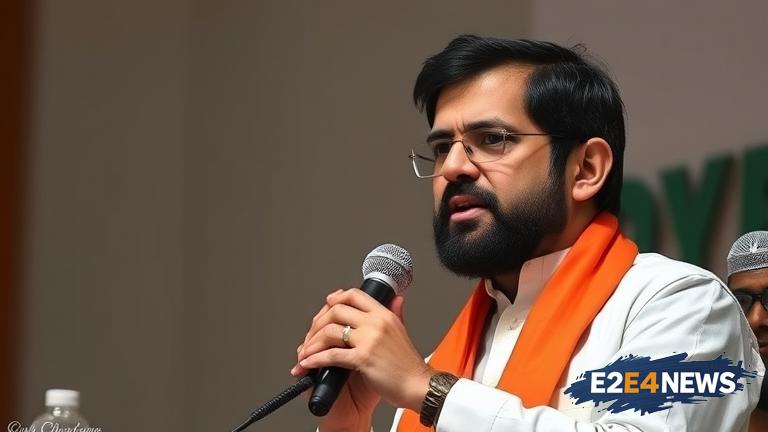The Indian political landscape has been abuzz with controversy after the country’s top court, the Supreme Court, reprimanded Congress leader Rahul Gandhi for his remarks on the Indian Army. The court’s decision has sparked a heated debate, with the ruling Bharatiya Janata Party (BJP) seizing the opportunity to label Gandhi ‘certified anti-national’. The controversy began when Gandhi, a prominent opposition leader, made comments that were perceived as questioning the Indian Army’s actions in the troubled region of Jammu and Kashmir. The BJP, which has long been at odds with Gandhi and the Congress party, was quick to pounce on the issue, accusing him of undermining the nation’s security and insulting the armed forces. The Supreme Court’s rebuke of Gandhi has been seen as a significant blow to the opposition leader, who has been attempting to revive his party’s fortunes in the face of a dominant BJP. The court’s decision has also sparked a wider debate about the role of the opposition in Indian politics and the limits of free speech. Gandhi’s comments were made in the context of a longstanding dispute over the Indian Army’s actions in Jammu and Kashmir, a region that has been plagued by militancy and unrest for decades. The BJP has long taken a hardline stance on the issue, advocating for a tough approach to dealing with separatist groups and militants. In contrast, the Congress party has taken a more nuanced view, advocating for a combination of development and dialogue to address the region’s problems. The Supreme Court’s rebuke of Gandhi has been seen as a victory for the BJP, which has been seeking to portray the opposition leader as unpatriotic and out of touch with the nation’s security concerns. However, the Congress party has hit back, accusing the BJP of attempting to politicize the issue and undermine the opposition. The controversy has also sparked a wider debate about the role of the media in Indian politics, with some accusing the press of amplifying the BJP’s narrative and ignoring the Congress party’s perspective. As the debate continues to rage, it remains to be seen how the controversy will play out in the coming days and weeks. The Indian public is closely watching the developments, with many taking to social media to express their opinions on the issue. The controversy has also sparked a renewed focus on the Indian Army’s actions in Jammu and Kashmir, with many calling for greater transparency and accountability. The BJP has long been accused of using the issue to whip up nationalist sentiment and distract from other pressing issues, such as the economy and corruption. However, the party has denied these allegations, arguing that it is simply seeking to protect the nation’s security and interests. The Congress party, on the other hand, has accused the BJP of attempting to create a divisive and polarized atmosphere, in which dissenting voices are silenced and opposition leaders are targeted. As the controversy continues to unfold, it remains to be seen how the Indian political landscape will be affected. The Supreme Court’s rebuke of Gandhi has significant implications for the opposition leader and the Congress party, and it is likely to have a major impact on the country’s politics in the coming months. The BJP is likely to continue to use the issue to attack the Congress party and undermine Gandhi’s credibility, while the opposition leader will need to navigate the controversy carefully in order to avoid further damage to his reputation. The Indian public is watching the developments closely, and it remains to be seen how the controversy will ultimately play out. The issue has also sparked a renewed focus on the importance of free speech and the role of the opposition in Indian politics. The Supreme Court’s decision has been seen as a significant test of the country’s democratic institutions, and it remains to be seen how the controversy will ultimately be resolved. The controversy has also highlighted the deep divisions within Indian society, with many taking to social media to express their opinions on the issue. The Indian government has been accused of attempting to silence dissenting voices and undermine the opposition, and it remains to be seen how the controversy will ultimately play out. The Supreme Court’s rebuke of Gandhi has significant implications for the country’s politics, and it is likely to have a major impact on the nation’s democratic institutions. The controversy has also sparked a renewed focus on the importance of accountability and transparency in Indian politics, with many calling for greater scrutiny of the government’s actions. The Indian public is closely watching the developments, and it remains to be seen how the controversy will ultimately be resolved. The issue has also sparked a renewed debate about the role of the media in Indian politics, with some accusing the press of amplifying the BJP’s narrative and ignoring the Congress party’s perspective. The controversy has significant implications for the country’s politics, and it is likely to have a major impact on the nation’s democratic institutions. The Supreme Court’s decision has been seen as a significant test of the country’s democratic institutions, and it remains to be seen how the controversy will ultimately be resolved.





